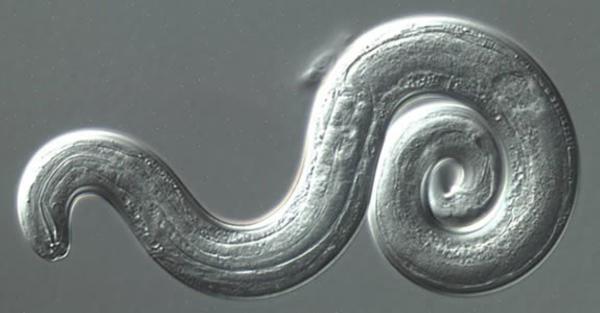Scientists Warning: Parasitic Brain Worm Spreading in Southeast U.S
Experts are sounding the alarm as a parasite that affects the brain, mainly transmitted through contaminated produce, is spreading in the southeastern United States.
The rat lungworm, also known as Angiostrongylus cantonensis, is commonly found in Southeast Asia and the Pacific Islands. People usually contract it by eating infected food, particularly fresh vegetables and snails. Although it is not endemic to the United States, its presence has been confirmed in several states including Texas, Louisiana, Alabama, Florida, and recently, Georgia. This highlights the increasing concern about its spread in the country.
How Do Humans Get Infected?
Contaminated food can infect humans, whether it is fresh produce or certain animals like snails and slugs.
Nicole Gottdenker, a Professor of Pathology at the University of Georgia College of Veterinary Medicine, explained to Newsweek, “When the infective stage of the worm is accidentally ingested by a human, it can go to the brain or spinal cord and cause tremendous inflammation, leading to symptoms like nausea, vomiting, neck stiffness, headaches, sometimes arm and leg tingling.”
According to the CDC, the infection can lead to coma or death in rare cases.
How Does It Spread?
This worm’s life cycle starts with rats. Larvae are excreted in their feces, which are then consumed by gastropods, such as snails and slugs. The parasite is then transmitted to humans and other animals through contaminated food or by directly consuming infected gastropods.
The parasite does not spread from person to person.
If the worm reaches the brain, it can cause:
-
- Nausea
- Vomiting
- Neck stiffness
- Headaches
- Tingling in arms and legs
According to Gottdenker, symptoms usually last for two to eight weeks, but they can sometimes persist for much longer. Children are at higher risk and can experience intensified symptoms, including fevers, irritability, drowsiness, stomach issues, and muscle twitching.
To prevent this parasite, communities, scientists, and health officials must collaborate. Individuals can take precautions such as:
-
- Thoroughly wash vegetables.
- Avoid eating raw or undercooked snails and certain seafood.
- Wear gloves when handling snails or slugs.
- Maintain hand hygiene, especially after handling food.
We can protect ourselves and our communities from the rat lungworm by staying informed and taking precautions.
Stay on top of mental health, nutrition, and other essential information by clicking “follow” and sharing with others.
Disclaimer: This article is not a substitute for professional medical advice or diagnosis and is solely for informational purposes. Please consult a healthcare professional for any medical concerns.
Read More: Mother of Missing Child in New York City Not Facing Charges







